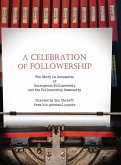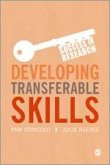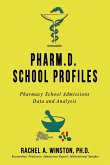Schade – dieser Artikel ist leider ausverkauft. Sobald wir wissen, ob und wann der Artikel wieder verfügbar ist, informieren wir Sie an dieser Stelle.
- Gebundenes Buch
- Merkliste
- Auf die Merkliste
- Bewerten Bewerten
- Teilen
- Produkt teilen
- Produkterinnerung
- Produkterinnerung
PLEASE UPDATE SAGE INDIA AND SAGE UK ADDRESSES ON IMPRINT PAGE.
Andere Kunden interessierten sich auch für
![The Influential School Leader The Influential School Leader]() Craig MurphyThe Influential School Leader40,99 €
Craig MurphyThe Influential School Leader40,99 €![A CELEBRATION OF FOLLOWERSHIP A CELEBRATION OF FOLLOWERSHIP]() Ira ChaleffA CELEBRATION OF FOLLOWERSHIP143,99 €
Ira ChaleffA CELEBRATION OF FOLLOWERSHIP143,99 €![Developing Transferable Skills Developing Transferable Skills]() Pam DenicoloDeveloping Transferable Skills46,99 €
Pam DenicoloDeveloping Transferable Skills46,99 €![Foundations of Career Counseling Foundations of Career Counseling]() Suzanne DuggerFoundations of Career Counseling189,99 €
Suzanne DuggerFoundations of Career Counseling189,99 €![Journey to Photography Journey to Photography]() Rachel WinstonJourney to Photography62,99 €
Rachel WinstonJourney to Photography62,99 €![Pharm.D. School Profiles Pharm.D. School Profiles]() Rachel WinstonPharm.D. School Profiles75,99 €
Rachel WinstonPharm.D. School Profiles75,99 €![Effective and Caring Leadership in the Early Years Effective and Caring Leadership in the Early Years]() Iram SirajEffective and Caring Leadership in the Early Years38,99 €
Iram SirajEffective and Caring Leadership in the Early Years38,99 €-
-
-
Produktdetails
- Produktdetails
- Verlag: Sage Publications
- Seitenzahl: 252
- Erscheinungstermin: 1. August 2007
- Englisch
- Abmessung: 260mm x 183mm x 18mm
- Gewicht: 676g
- ISBN-13: 9781412957410
- ISBN-10: 1412957419
- Artikelnr.: 22768000
- Herstellerkennzeichnung
- Libri GmbH
- Europaallee 1
- 36244 Bad Hersfeld
- gpsr@libri.de
- Verlag: Sage Publications
- Seitenzahl: 252
- Erscheinungstermin: 1. August 2007
- Englisch
- Abmessung: 260mm x 183mm x 18mm
- Gewicht: 676g
- ISBN-13: 9781412957410
- ISBN-10: 1412957419
- Artikelnr.: 22768000
- Herstellerkennzeichnung
- Libri GmbH
- Europaallee 1
- 36244 Bad Hersfeld
- gpsr@libri.de
Fenwick W. English (Ph.D.) is the R. Wendell Eaves Senior Distinguished Professor of Educational Leadership in the School of Education at the University of North Carolina at Chapel Hill, a position he has held since 2001. As a scholar/practitioner he has held positions as a school principal and superintendent of schools in California and New York and as a department chair, dean, and vice-chancellor of academic affairs at universities in Ohio and Indiana. He is the former President of the University Council of Educational Administration (UCEA) and of the National Council of Professors of Educational Administration (NCPEA). His research has been reported in national and international academic forums. He edited the 2006 SAGE Encyclopedia of Educational Leadership and Administration, the 2009 SAGE Library of Educational Thought and Practice: Educational Leadership and Administration; and the 2011 SAGE Handbook of Educational Leadership (2nd Ed.). In 2013, he received the Living Legend Award from NCPEA for his lifetime contribution to the field of educational leadership.
Preface
1. The Leadership Challenge
Leaders and Leadership are Universal in the Human Experience
Pursuing Graduate Study to Become the "Complete Leader"
Leadership Is an Art Because It Involves a Purposive Construction of Self
The Importance of Individual Agency
Leadership Is an Acquired Set of Habits and Skills
Why Academic Study?
Is There a Difference Between Leadership and Management?
The Basis of Authority
The Use of Power and Sanctions
Follower Relations and Interactions
Role Legitimacy and Relationships
Creativity
The Necessary Alliance: Leadership and Management
Pursuing Learning Extensions of the Chapter
Writing in Your Personal Reflective Journal
A Review of Key Chapter Concepts
References
2. Archetypes of Leadership in the Human Experience
An Example of a Personal Leadership Journey
The Origins of Leadership
Leadership is Universal -But Leaders Are Contextual and Culturally Specific
Actors
The American Monomyth in Action
Gender Barriers in Mythos and Religion
Pursuing Learning Extensions of the Chapter
Writing in Your Personal Reflective Journal
A Review of Key Chapter Concepts
References
3. Mental Prisms of Leadership
Discerning Contemporary Notions of Perception and Truth
How Do We Know What We Perceive Is True? Theories of Truth
Linguistic Difficulties with Theories of Truth
The Uses of Truth in Science
Pursuing "Truth" in Educational Leadership
Tracing the Influence of Herbert Simon and the Doctrine of Efficiency
A Final Commentary About Theories of Truth
Pursuing Leaning Extensions of the Chapter
Writing in Your Personal Reflective Journal
A Review of Key Chapter Concepts
References
4. Individual Human Agency and Principles of Action
The Apex of Decision-Making: The Oracle of Delphi
The Gardner Cognitive Model of Leadership
There's No Getting Around Who the Leader Is and What Is Important
The Antipodes of Moral Discourse
A Man of Unbending Principle Changes the Center of Gravity of a Nation
A Pragmatic Man of the People Saves the Nation
The Creation of a Moral Compass
A Moral Compass in Contentious Times: The Case of Ted Bell
The Case of the Wounded Leader
Pursuing Learning Extensions of the Chapter
Writing in Your Personal Reflective Journal
A Review of Key Chapter Concepts
References
5. Leadership as Artful Performance
Roles vs. Traits: Popular Misconceptions of Leadership
Determining Role Legitimacy as the Basis of Performance
Is Leadership Acting?
Real Life Drama in Chicago: A Portrait of Power Undone
How Followers Look to School Leaders for What They Need
A Portrait of Two Types of Story Tellers as Leaders
Pursuing Learning Extensions of the Chapter
Writing in Your Personal Reflective Journal
A Review of Key Chapter Concepts
References
6. Understanding the Landscape of Educational Leadership
Central Tenets of Modernism
The Pseudo Scientific Epoch: Educational Leadership and the Long Shadow of
"Scientific Management"
The Early Scientific Epoch
The Behaviorism Epoch
The Epoch of Structuralism
The Feminist/Critical Theory Epoch
The Critical Race Theory Epoch
The Queer Theory Epoch
The Postmodern Epoch
Kitsch Management Texts and Educational Leadership
Pursuing Learning Extensions of the Chapter
Writing in Your Personal Reflective Journal
A Review of Key Chapter Concepts
References
7. Balancing Performance and Accountability
A Review of the Many Forms of Life Writing
Third Person Forms of Life Writing
First Person Life Writing Forms
Gauging the Possibilities of Life Writing to Understand Leadership
Confronting the Myopia of "the Field"
Servant Leadership: The Mind and the Heart as One
Pursuing Learning Extensions of the Chapter
Writing in Your Personal Reflective Journal
A Review of Key Chapter Concepts
References
8. Artful Performance and National Standards
The National Leadership Standards
Foucault's Concept of Apparatus
Problems with the Knowledge Base: Producing an Unequivocal Platform for the
Normalizing Gaze and the Policing Function
Re-Tracing the Steps in the Developmental Process
Step One: Reductionism, Rationality and Core Technologies
Step Two: The Erasure of Context So One Size Fits All
Step Three: Stifling Research Dissent by the V.C.P (Vicious Circle
Principle)
The Metaphors of Efficiency in the ISLLC Standards
The National Debate on Educational Leadership Preparation
Pursuing Learning Extensions of the Chapter
Writing in Your Personal Reflective Journal
A Review of Key Chapter Concepts
References
Index
About the Author
1. The Leadership Challenge
Leaders and Leadership are Universal in the Human Experience
Pursuing Graduate Study to Become the "Complete Leader"
Leadership Is an Art Because It Involves a Purposive Construction of Self
The Importance of Individual Agency
Leadership Is an Acquired Set of Habits and Skills
Why Academic Study?
Is There a Difference Between Leadership and Management?
The Basis of Authority
The Use of Power and Sanctions
Follower Relations and Interactions
Role Legitimacy and Relationships
Creativity
The Necessary Alliance: Leadership and Management
Pursuing Learning Extensions of the Chapter
Writing in Your Personal Reflective Journal
A Review of Key Chapter Concepts
References
2. Archetypes of Leadership in the Human Experience
An Example of a Personal Leadership Journey
The Origins of Leadership
Leadership is Universal -But Leaders Are Contextual and Culturally Specific
Actors
The American Monomyth in Action
Gender Barriers in Mythos and Religion
Pursuing Learning Extensions of the Chapter
Writing in Your Personal Reflective Journal
A Review of Key Chapter Concepts
References
3. Mental Prisms of Leadership
Discerning Contemporary Notions of Perception and Truth
How Do We Know What We Perceive Is True? Theories of Truth
Linguistic Difficulties with Theories of Truth
The Uses of Truth in Science
Pursuing "Truth" in Educational Leadership
Tracing the Influence of Herbert Simon and the Doctrine of Efficiency
A Final Commentary About Theories of Truth
Pursuing Leaning Extensions of the Chapter
Writing in Your Personal Reflective Journal
A Review of Key Chapter Concepts
References
4. Individual Human Agency and Principles of Action
The Apex of Decision-Making: The Oracle of Delphi
The Gardner Cognitive Model of Leadership
There's No Getting Around Who the Leader Is and What Is Important
The Antipodes of Moral Discourse
A Man of Unbending Principle Changes the Center of Gravity of a Nation
A Pragmatic Man of the People Saves the Nation
The Creation of a Moral Compass
A Moral Compass in Contentious Times: The Case of Ted Bell
The Case of the Wounded Leader
Pursuing Learning Extensions of the Chapter
Writing in Your Personal Reflective Journal
A Review of Key Chapter Concepts
References
5. Leadership as Artful Performance
Roles vs. Traits: Popular Misconceptions of Leadership
Determining Role Legitimacy as the Basis of Performance
Is Leadership Acting?
Real Life Drama in Chicago: A Portrait of Power Undone
How Followers Look to School Leaders for What They Need
A Portrait of Two Types of Story Tellers as Leaders
Pursuing Learning Extensions of the Chapter
Writing in Your Personal Reflective Journal
A Review of Key Chapter Concepts
References
6. Understanding the Landscape of Educational Leadership
Central Tenets of Modernism
The Pseudo Scientific Epoch: Educational Leadership and the Long Shadow of
"Scientific Management"
The Early Scientific Epoch
The Behaviorism Epoch
The Epoch of Structuralism
The Feminist/Critical Theory Epoch
The Critical Race Theory Epoch
The Queer Theory Epoch
The Postmodern Epoch
Kitsch Management Texts and Educational Leadership
Pursuing Learning Extensions of the Chapter
Writing in Your Personal Reflective Journal
A Review of Key Chapter Concepts
References
7. Balancing Performance and Accountability
A Review of the Many Forms of Life Writing
Third Person Forms of Life Writing
First Person Life Writing Forms
Gauging the Possibilities of Life Writing to Understand Leadership
Confronting the Myopia of "the Field"
Servant Leadership: The Mind and the Heart as One
Pursuing Learning Extensions of the Chapter
Writing in Your Personal Reflective Journal
A Review of Key Chapter Concepts
References
8. Artful Performance and National Standards
The National Leadership Standards
Foucault's Concept of Apparatus
Problems with the Knowledge Base: Producing an Unequivocal Platform for the
Normalizing Gaze and the Policing Function
Re-Tracing the Steps in the Developmental Process
Step One: Reductionism, Rationality and Core Technologies
Step Two: The Erasure of Context So One Size Fits All
Step Three: Stifling Research Dissent by the V.C.P (Vicious Circle
Principle)
The Metaphors of Efficiency in the ISLLC Standards
The National Debate on Educational Leadership Preparation
Pursuing Learning Extensions of the Chapter
Writing in Your Personal Reflective Journal
A Review of Key Chapter Concepts
References
Index
About the Author
Preface
1. The Leadership Challenge
Leaders and Leadership are Universal in the Human Experience
Pursuing Graduate Study to Become the "Complete Leader"
Leadership Is an Art Because It Involves a Purposive Construction of Self
The Importance of Individual Agency
Leadership Is an Acquired Set of Habits and Skills
Why Academic Study?
Is There a Difference Between Leadership and Management?
The Basis of Authority
The Use of Power and Sanctions
Follower Relations and Interactions
Role Legitimacy and Relationships
Creativity
The Necessary Alliance: Leadership and Management
Pursuing Learning Extensions of the Chapter
Writing in Your Personal Reflective Journal
A Review of Key Chapter Concepts
References
2. Archetypes of Leadership in the Human Experience
An Example of a Personal Leadership Journey
The Origins of Leadership
Leadership is Universal -But Leaders Are Contextual and Culturally Specific
Actors
The American Monomyth in Action
Gender Barriers in Mythos and Religion
Pursuing Learning Extensions of the Chapter
Writing in Your Personal Reflective Journal
A Review of Key Chapter Concepts
References
3. Mental Prisms of Leadership
Discerning Contemporary Notions of Perception and Truth
How Do We Know What We Perceive Is True? Theories of Truth
Linguistic Difficulties with Theories of Truth
The Uses of Truth in Science
Pursuing "Truth" in Educational Leadership
Tracing the Influence of Herbert Simon and the Doctrine of Efficiency
A Final Commentary About Theories of Truth
Pursuing Leaning Extensions of the Chapter
Writing in Your Personal Reflective Journal
A Review of Key Chapter Concepts
References
4. Individual Human Agency and Principles of Action
The Apex of Decision-Making: The Oracle of Delphi
The Gardner Cognitive Model of Leadership
There's No Getting Around Who the Leader Is and What Is Important
The Antipodes of Moral Discourse
A Man of Unbending Principle Changes the Center of Gravity of a Nation
A Pragmatic Man of the People Saves the Nation
The Creation of a Moral Compass
A Moral Compass in Contentious Times: The Case of Ted Bell
The Case of the Wounded Leader
Pursuing Learning Extensions of the Chapter
Writing in Your Personal Reflective Journal
A Review of Key Chapter Concepts
References
5. Leadership as Artful Performance
Roles vs. Traits: Popular Misconceptions of Leadership
Determining Role Legitimacy as the Basis of Performance
Is Leadership Acting?
Real Life Drama in Chicago: A Portrait of Power Undone
How Followers Look to School Leaders for What They Need
A Portrait of Two Types of Story Tellers as Leaders
Pursuing Learning Extensions of the Chapter
Writing in Your Personal Reflective Journal
A Review of Key Chapter Concepts
References
6. Understanding the Landscape of Educational Leadership
Central Tenets of Modernism
The Pseudo Scientific Epoch: Educational Leadership and the Long Shadow of
"Scientific Management"
The Early Scientific Epoch
The Behaviorism Epoch
The Epoch of Structuralism
The Feminist/Critical Theory Epoch
The Critical Race Theory Epoch
The Queer Theory Epoch
The Postmodern Epoch
Kitsch Management Texts and Educational Leadership
Pursuing Learning Extensions of the Chapter
Writing in Your Personal Reflective Journal
A Review of Key Chapter Concepts
References
7. Balancing Performance and Accountability
A Review of the Many Forms of Life Writing
Third Person Forms of Life Writing
First Person Life Writing Forms
Gauging the Possibilities of Life Writing to Understand Leadership
Confronting the Myopia of "the Field"
Servant Leadership: The Mind and the Heart as One
Pursuing Learning Extensions of the Chapter
Writing in Your Personal Reflective Journal
A Review of Key Chapter Concepts
References
8. Artful Performance and National Standards
The National Leadership Standards
Foucault's Concept of Apparatus
Problems with the Knowledge Base: Producing an Unequivocal Platform for the
Normalizing Gaze and the Policing Function
Re-Tracing the Steps in the Developmental Process
Step One: Reductionism, Rationality and Core Technologies
Step Two: The Erasure of Context So One Size Fits All
Step Three: Stifling Research Dissent by the V.C.P (Vicious Circle
Principle)
The Metaphors of Efficiency in the ISLLC Standards
The National Debate on Educational Leadership Preparation
Pursuing Learning Extensions of the Chapter
Writing in Your Personal Reflective Journal
A Review of Key Chapter Concepts
References
Index
About the Author
1. The Leadership Challenge
Leaders and Leadership are Universal in the Human Experience
Pursuing Graduate Study to Become the "Complete Leader"
Leadership Is an Art Because It Involves a Purposive Construction of Self
The Importance of Individual Agency
Leadership Is an Acquired Set of Habits and Skills
Why Academic Study?
Is There a Difference Between Leadership and Management?
The Basis of Authority
The Use of Power and Sanctions
Follower Relations and Interactions
Role Legitimacy and Relationships
Creativity
The Necessary Alliance: Leadership and Management
Pursuing Learning Extensions of the Chapter
Writing in Your Personal Reflective Journal
A Review of Key Chapter Concepts
References
2. Archetypes of Leadership in the Human Experience
An Example of a Personal Leadership Journey
The Origins of Leadership
Leadership is Universal -But Leaders Are Contextual and Culturally Specific
Actors
The American Monomyth in Action
Gender Barriers in Mythos and Religion
Pursuing Learning Extensions of the Chapter
Writing in Your Personal Reflective Journal
A Review of Key Chapter Concepts
References
3. Mental Prisms of Leadership
Discerning Contemporary Notions of Perception and Truth
How Do We Know What We Perceive Is True? Theories of Truth
Linguistic Difficulties with Theories of Truth
The Uses of Truth in Science
Pursuing "Truth" in Educational Leadership
Tracing the Influence of Herbert Simon and the Doctrine of Efficiency
A Final Commentary About Theories of Truth
Pursuing Leaning Extensions of the Chapter
Writing in Your Personal Reflective Journal
A Review of Key Chapter Concepts
References
4. Individual Human Agency and Principles of Action
The Apex of Decision-Making: The Oracle of Delphi
The Gardner Cognitive Model of Leadership
There's No Getting Around Who the Leader Is and What Is Important
The Antipodes of Moral Discourse
A Man of Unbending Principle Changes the Center of Gravity of a Nation
A Pragmatic Man of the People Saves the Nation
The Creation of a Moral Compass
A Moral Compass in Contentious Times: The Case of Ted Bell
The Case of the Wounded Leader
Pursuing Learning Extensions of the Chapter
Writing in Your Personal Reflective Journal
A Review of Key Chapter Concepts
References
5. Leadership as Artful Performance
Roles vs. Traits: Popular Misconceptions of Leadership
Determining Role Legitimacy as the Basis of Performance
Is Leadership Acting?
Real Life Drama in Chicago: A Portrait of Power Undone
How Followers Look to School Leaders for What They Need
A Portrait of Two Types of Story Tellers as Leaders
Pursuing Learning Extensions of the Chapter
Writing in Your Personal Reflective Journal
A Review of Key Chapter Concepts
References
6. Understanding the Landscape of Educational Leadership
Central Tenets of Modernism
The Pseudo Scientific Epoch: Educational Leadership and the Long Shadow of
"Scientific Management"
The Early Scientific Epoch
The Behaviorism Epoch
The Epoch of Structuralism
The Feminist/Critical Theory Epoch
The Critical Race Theory Epoch
The Queer Theory Epoch
The Postmodern Epoch
Kitsch Management Texts and Educational Leadership
Pursuing Learning Extensions of the Chapter
Writing in Your Personal Reflective Journal
A Review of Key Chapter Concepts
References
7. Balancing Performance and Accountability
A Review of the Many Forms of Life Writing
Third Person Forms of Life Writing
First Person Life Writing Forms
Gauging the Possibilities of Life Writing to Understand Leadership
Confronting the Myopia of "the Field"
Servant Leadership: The Mind and the Heart as One
Pursuing Learning Extensions of the Chapter
Writing in Your Personal Reflective Journal
A Review of Key Chapter Concepts
References
8. Artful Performance and National Standards
The National Leadership Standards
Foucault's Concept of Apparatus
Problems with the Knowledge Base: Producing an Unequivocal Platform for the
Normalizing Gaze and the Policing Function
Re-Tracing the Steps in the Developmental Process
Step One: Reductionism, Rationality and Core Technologies
Step Two: The Erasure of Context So One Size Fits All
Step Three: Stifling Research Dissent by the V.C.P (Vicious Circle
Principle)
The Metaphors of Efficiency in the ISLLC Standards
The National Debate on Educational Leadership Preparation
Pursuing Learning Extensions of the Chapter
Writing in Your Personal Reflective Journal
A Review of Key Chapter Concepts
References
Index
About the Author








